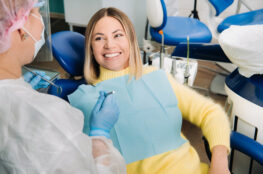In January, we’re all tempted to make those resolutions, you know the ones we mean: the booze inspired ones. At midnight on New Year’s Eve with a glass in our hands we tend to set difficult and somewhat unrealistic goals to make the next morning that much harder. In addition to a fabulous headache, you now have the responsibility of carrying out your plans in arguably the worst mental health month of the calendar. January is difficult enough to negotiate what with the British weather, the come down from Christmas, the sugar low as you run out of Quality Street and the long slog of uninterrupted work looming ahead till summer. That’s without having declared on social media or to your friends and family that you’ll lose ten pounds by February 1st. Unless you’re pregnant and due in January, it’s going to be difficult to accomplish.
Many people embrace fad diets to lose weight in an attempt to keep to their badly thought-out resolutions. Although losing a few pounds can be very beneficial to your health if you happen to be overweight, some of the most popular fad diets can have a detrimental effect on other aspects of your health. So, before you sign up to the juice cleanses or start pounding back the diet shakes, read our advice on what to avoid if you’re wanting to improve your overall health this January.
1 The juice cleanse: Fruit juice is good for us. It contains all sorts of vitamins and minerals that we might not otherwise get in our diets. Nutritionally speaking, orange juice, or other juices rich in vitamin C, can help you absorb more iron from the foods you eat. This can help fight anaemia and helps your body to create more haemoglobin to make blood. Important stuff, right? So why would a diet consisting solely or mainly of juice be bad? Everyday health writes that fruit juice is “high in sugar and can also be quite acidic”.
Sugar can attack your dental health like nothing else, as we all know, but you might be surprised at how much sugar your average fruit juices contain. Many have added sugar in addition to high levels of natural sugar. There’s also the acid to consider. Acid erodes the enamel on your teeth, (the hard white part) which protects the other layers of your teeth. If the enamel gets damaged too much it can expose the yellow layer underneath the enamel, making your smile less white and putting your teeth at greater risk from bacteria and sugar erosion.

2 The shake diet: We all know someone who knows someone who has had success on the Slim fast diet or a similar program. The clue is in the name, it helps you to slim down fast but at what cost? Not only are quick fix diets proven to discourage long-term weight loss, but the sheer amount of sugar some diet shakes contain can make them unhealthy things to drink at all. Not to mention the chocolaty meal replacement bars some companies offer.
Nutritionist Melissa Eboli says, “You’d be better off taking a scoop of sugar and adding it to water than drinking all of the chemical non-food, sugar-laden ingredients that make up SlimFast.” Not that we’re suggesting you actually do that. We don’t. Seriously, don’t do that. But do be aware of what the beverages you’re consuming contain and spare a moment for your teeth before you splash out on a new shake regime.
3 Smoothies: Blenders are a popular New Year’s impulse buy since many people think that smoothies are the easiest way to increase the amount of fruit and vegetables you consume. Although ingesting more fruit and vegetables is a healthy thing to consider, we urge you to think how they can be added to your diet, rather than your blender. Smoothies, like fruit juices can contain a lot of sugar and not just the naturally occurring sugars found in the fruits themselves. After a while, people find themselves wanting to make their smoothies more creative and diverse. Some people add a spoonful of peanut butter, honey or a flavouring of some kind. These sugar rich concoctions aren’t necessarily good for your body and they aren’t great for your teeth either.
The NHS recommends that if you do choose to drink smoothies, then drink them at mealtimes “as they can cause tooth decay” and drinking them with food limits the damage. According to Everyday Health, “If you drink slowly, you allow the liquid to have more contact with your teeth”, which allows more time for the acid and sugar to damage your enamel. So, if you do knock back the kale extracts in the New Year, make sure you don’t sip them. Trust us, no one wants to make a kale smoothie last any longer than it has to anyway.
4 Dry January: After the over-indulgence of the festive season, it’s quite usual for people to resolve to cut back on the booze for a while and there’s nothing wrong with that. Wine can contain up to a calorie per millimetre which can add up to a lot, so cutting the alcohol can certainly help your weight loss. We’re not suggesting that having a dry January would hurt you, but we would advise you to be mindful of what you are replacing it with.
Some people are of the opinion that if you give up alcohol, it gives you carte blanche over all other beverages and even food too. Cutting out beer and wine will be harder for some more than others but what is important to remember is that alcohol is not the only drink that can be bad for you. Without a glass of wine in your hand you might find a sugary tea or coffee there instead or an acidic fizzy drink. Some people also find that they eat more chocolate and sweet treats to stop feeling deprived without the booze. Dry January is a fine idea, just make sure you make wise decisions about what else you’re eating and drinking.
We’re not saying you can’t drink juice or smoothies or abstain from booze if you want to. We are advising you to be mindful of what you are eating and drinking this January. No matter how tempting it is to try to cut a few corners in pursuit of a trimmer physique, there is no substitute for a healthy, varied diet and an exercise program you can stick to. This is your health we’re talking about and, in our opinion, there are no risks worth taking where that is concerned.
Be sensible this January and stay safe.



